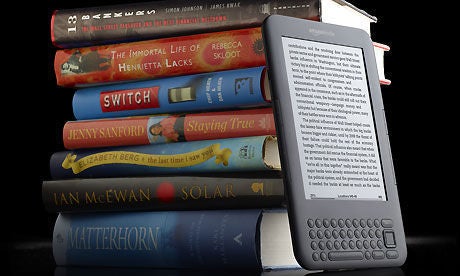Why reading paper books is better for your mind than e-readers
Published 3:06 pm Monday, January 12, 2015
WASHINGTON — You got an e-reader over the holidays. What should you load it up with?
Beach reads? Sure. “Ulysses”? Probably not.
We know a lot about the pros and cons of reading a hard-copy book vs. reading electronically. The problem is, many of us refuse to listen.
Don’t get me wrong: Digital reading has some real advantages. Ask people what they like most about reading on digital screens (a question I’ve put to several hundred university students in the United States, Germany, Japan and Slovakia), and you hear over and again about convenience: “easy to carry” and “compact.” We also know electronic texts (especially when they are open-access or donated) are vital for democratizing learning opportunities. Just look at projects like the Digital Public Library of America or Worldreader.
More points for digital reading: e-books tend to be cheaper than print versions (though outside America, tax structures sometimes complicate the comparison). There’s also the environmental argument. Think of the trees!
Yet the soundness of this case is arguable. The earth metals we’re using up to build e-readers and tablets are not just rare but highly toxic. And think about all that energy needed to run servers and cooling fans. And remember, trees are a renewable resource.
Then, there’s the appeal of a hard copy. What fascinates me is how many people — from teenagers to millennials to those of a certain age — prefer print when reading both for pleasure and for school or work. Drawing examples from my own research, some of the reasons are aesthetic (“charm of actually turning pages” and “scent of a new book”). Others involve a sense of accomplishment (“able to see how much I read”), ease of annotation (“I can write on the pages”), and navigation (“easy to locate where I was”). In contrast, I hear abundant complaints about eye strain and headaches when using screens.
Much of what students liked about reading print involved their minds. They said “it’s easier to focus,” “my spatial memory works best,” and “feel like the content sticks in my head more easily.” Some also acknowledged they took more time with printed text and read more carefully — not really a surprise, since digital screens encourage scrolling and hasten us along to grab the next Web site or tweet.
But the real nail in the coffin for one-size-fits-all electronic reading is concentration. Over 92 percent of those I surveyed said they concentrate best when reading a hard copy. The explanation is hardly rocket science. When a digital device has an Internet connection, it’s hard to resist the temptation to jump ship: I’ll just respond to that text I heard come in, check the headlines, order those boots that are on sale.
Readers are human. If you dangle distractions in front of us (or if we know they are just a click or swipe away), it’s hard not to take the bait.
Which brings us back to question of what sorts of readings it makes sense to do onscreen and which to reserve for paper. If digital interruptions don’t threaten your enjoyment or understanding of a text, then medium may not matter. Casual reading like Baldacci? If you break to check sports scores, little harm done. Just don’t expect to understand much of Joyce this way.





